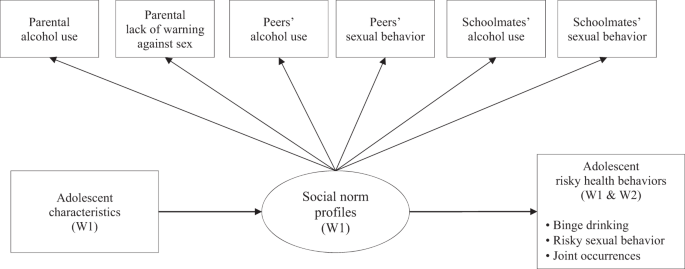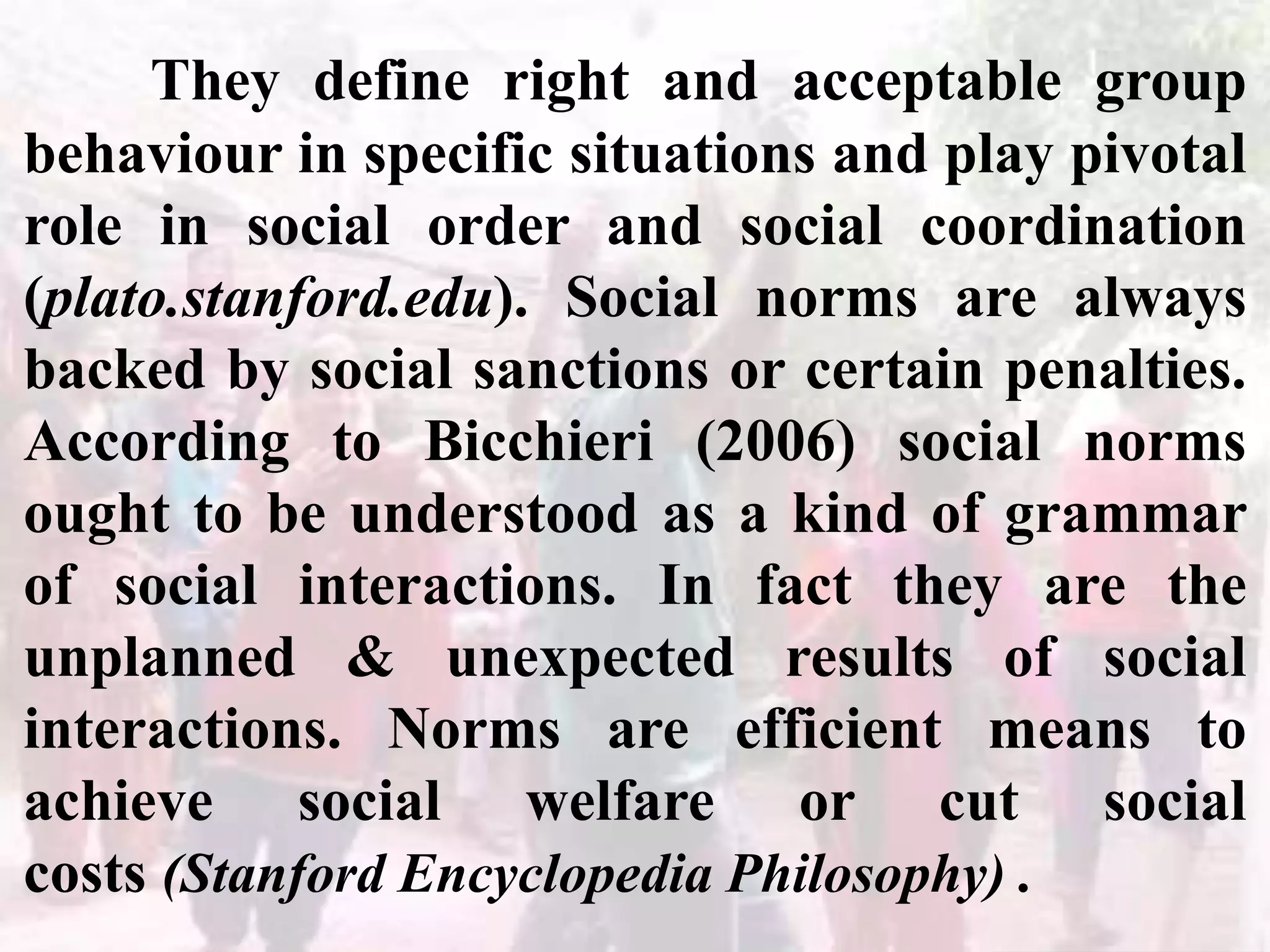Norms are shared expectations or rules that govern behavior within a group or society. They can be explicit, such as laws and regulations, or implicit, such as cultural customs and social etiquette. Norms serve a variety of functions in society, including providing a sense of stability and predictability, promoting social cohesion, and helping to maintain order and control.
One characteristic of norms is that they are culturally specific. Different societies and groups have their own set of norms that may be quite different from those of other societies or groups. For example, in some cultures it is considered rude to make direct eye contact with someone you are talking to, while in other cultures this is a sign of respect.
Another characteristic of norms is that they can be either formal or informal. Formal norms are those that are codified and enforced by institutions, such as laws and regulations. Informal norms, on the other hand, are unwritten rules that are enforced through social pressure and informal means, such as ostracism or disapproval.
Norms can also be either explicit or implicit. Explicit norms are those that are clearly stated and understood by all members of a group or society. They are often written down and codified, such as laws and regulations. Implicit norms, on the other hand, are more subtle and may not be explicitly stated, but are understood and followed by members of a group or society.
Norms can also vary in terms of their level of strictness or looseness. Some norms are very strict and are strictly enforced, while others are more lenient and may be more flexible or open to interpretation.
In addition to these characteristics, norms can also change over time. As societies and groups evolve and change, so too do their norms. This can be seen in the shift towards more progressive attitudes towards social issues such as race, gender, and sexuality.
Overall, norms play a vital role in shaping behavior within a group or society. They provide a sense of stability and predictability, promote social cohesion, and help to maintain order and control. While norms can vary greatly across different societies and groups, they all serve similar functions in promoting social harmony and stability.







